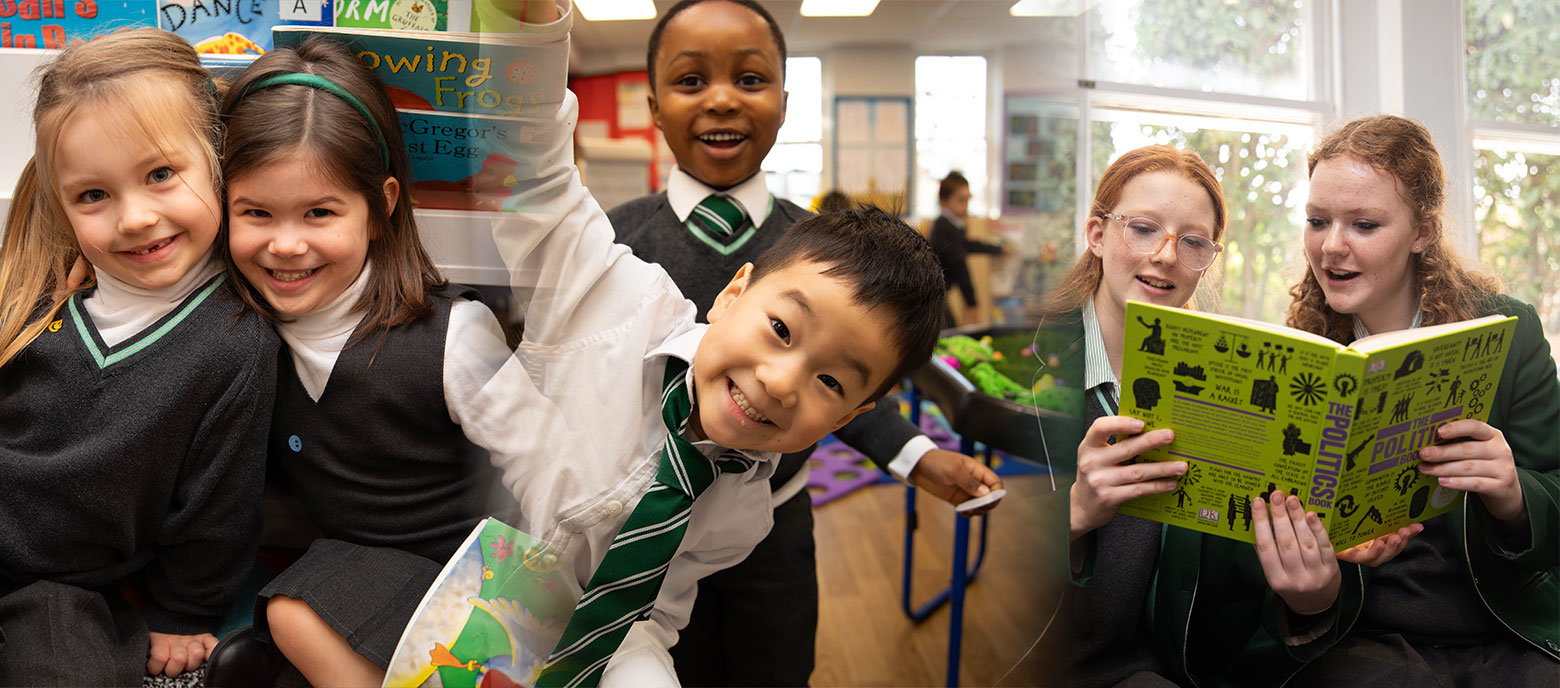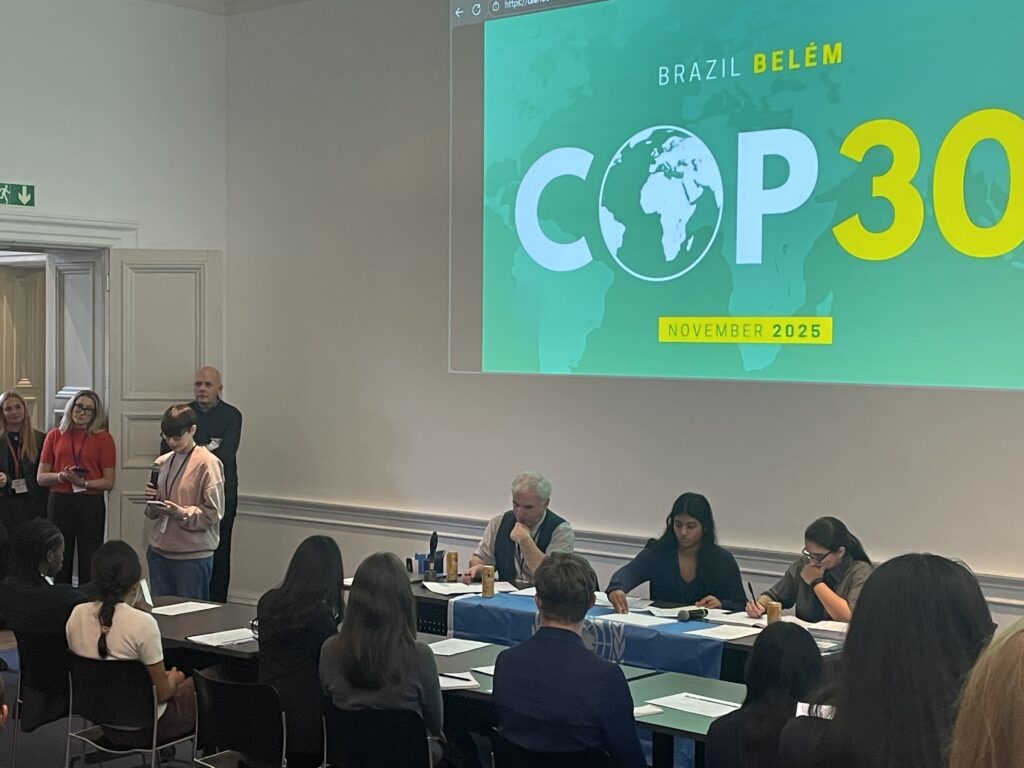On Tuesday, 4 November, we attended the United Learning school’s COP30 simulation event at the Royal Geographical Society in London, ahead of the real event taking place in Belém, Brazil.
During this simulation event, we collaborated with participants from other schools in our respective roles. This year, we had students representing India, Fossil Fuel Lobbyists, and one of the two Secretary Generals. Each of these roles represented some of the stakeholders that are currently in Belém. The overall idea of the event was to see if our negotiations and agreements between each of the representing countries could get the increase in climate temperature to stay below 2°C, which is considered the tipping point for the climate. These negotiations would also have been influenced by how the Fossil Fuel Lobbyists and Climate Activists persuaded each of these countries on their decisions, and how the journalists then portrayed these agreements to the rest of the countries as to how ‘trustworthy’ they were.
After all the final negotiations and decisions had been made, they were then put into a climate calculator to assess the success of each outcome and determine whether the rise could be capped below the tipping point. This year, we were successful at +1.9°C. We also gained the realisation that to do all of this, it would require a huge amount of time, effort, and money to keep the agreements of reducing carbon emissions to what they were before pre-industrial levels.
Overall, having this experience showed us a glimpse of what the COP events are like and experience part of it firsthand and how each of the factors can have such a huge influence on the climate. It also benefited all of our negotiation and communication skills, and how to do so effectively.
I loved this event, and if I had the opportunity, I would absolutely want to go back and experience another year of the negotiations to see if the outcome from this year could be improved!
Written by Sixth Form Students





